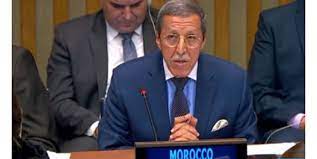In Addis Ababa, ministers from middle-income countries (MICs) called for the inclusion of debt relief mechanisms and the increase and strengthening of capital from multilateral banks.
Morocco’s Ambassador to the United Nations, Omar Hilale, spoke in Addis Ababa on Monday 22 July about the challenges faced by middle-income countries in financing sustainable development. He was speaking at the first session of the ministerial preparatory committee for the Fourth Conference on Financing for Development.
Speaking on behalf of the MIC Group, Omar Hilale stressed the importance of this preparatory meeting, with a view to the Seville Conference scheduled for 2025. He pointed out that this session was a key stage in assessing the progress made since the adoption of the Addis Ababa Action Agenda in 2015, and in identifying concrete
solutions to overcome the obstacles to implementing the Sustainable Development Goals (SDGs) by 2030.
At the heart of his speech, Ambassador Hilale recalled the financing gap as the main obstacle to achieving the sustainable development goals in their economic, social and environmental dimensions.
He pointed out that, despite their essential role in the global economy, and despite accounting for 62% of the world’s population suffering from poverty, MICs are often excluded from the necessary international support and access to financing to deal with their growing debt burden, as well as a multitude of climate vulnerabilities and social inequalities.
Focus on the SDGs
Ambassador Hilale also highlighted the Rabat Declaration of last February, which was the outcome of the Fifth Ministerial Conference on Middle-Income Countries.
This Ministerial Declaration called for a reshaping of international cooperation in favour of the development of MICs, he recalled. The ministers also called for MICs to be included in debt relief mechanisms, for the capital of multilateral development banks to be increased and strengthened, and for their needs to be taken into account in the reform of the international financial architecture.
This first preparatory session in Addis Ababa, which will continue until Friday, will be followed by a second in New York in December and a third in Mexico in February 2025.
The work of these committees will serve as a basis for negotiating the financing action programme for sustainable development that will crown the Seville conference.
MN/Sf/ac/fss/as/APA


